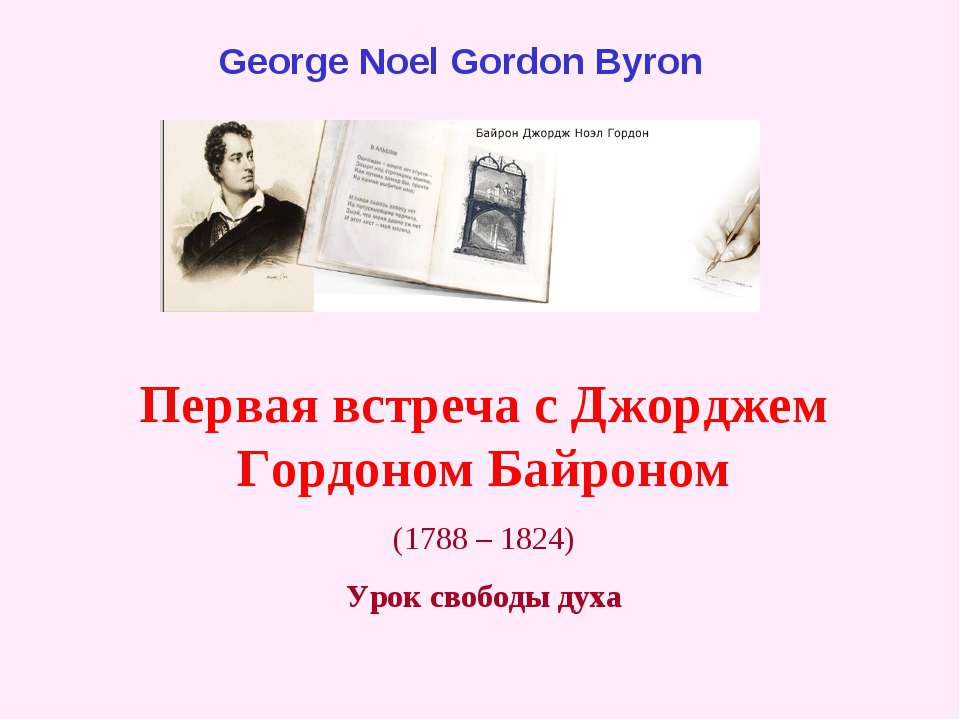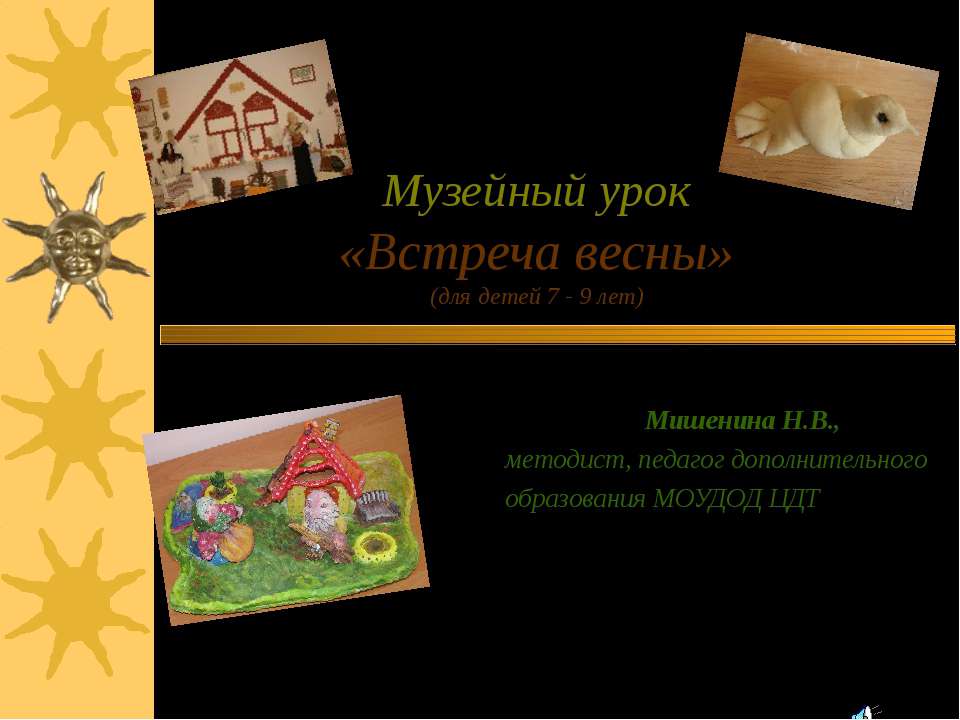Первая встреча с Джорджем Гордоном Байроном (1788 – 1824)

- Рубрика: Презентации / Презентации по английскому языку
- Просмотров: 208
Презентация для классов "Первая встреча с Джорджем Гордоном Байроном (1788 – 1824)" онлайн бесплатно на сайте электронных школьных презентаций uchebniki.org.ua
Первая встреча с Джорджем Гордоном Байроном (1788 – 1824) Урок свободы духа George Noel Gordon Byron
Хочу я быть ребенком вольным... (1807) I would I were a careless child, Still dwelling in my Highland cave, Or roaming through the dusky wild, Or bounding o'er the dark blue wave…
Миссис Байрон, мать Джорджа Гордона Байрона. Худ. Т. Стюардсон. Капитан Джон Байрон, отец Джорджа Гордона Байрона. Гравюра
My soul is dark - Oh! Quickly string The harp I yet can brook to hear; And let thy gentle fingers fling Its melting murmurs o'er mine ear. If in this heart a hope be dear, That sound shall charm it forth again: If in these eyes there lurk a tear, 'Twill flow, and cease to burn my brain. But bid the strain be wild and deep, Nor let thy notes of joy be first: I tell thee, minstrel, I must weep, Or else this heave heart will burst; For it hath been by sorrow nursed, And ached in sleepless silence long; And now 'tis doomed to know the worst, And break at once - or yield to song.
"…and ached in sleepless silence long" "…let thy gentle fingers flying" «…Its melting murmurs o'er my ear"
soul, string harp, fingers, heart; dark, gentle, dear; charm, fly, lurk. minstrel, heavy heart, sorrow, worst; wild, deep; weep burst, break
George Gordon Byron, later Noel, 6th Baron Byron FRS was an Anglo-Scottish poet and a leading figure in Romanticism. Amongst Byron's best-known works are the brief poems "She walks in beauty," and "So, we'll go no more a-roving," and the narrative poems Childe Harold's Pilgrimage and Don Juan. He is regarded as one of the greatest European poets and remains widely read and influential, both in the English-speaking world and beyond. Byron's fame rests not only on his writings but also on his life, which featured extravagant living, numerous love affairs, debts, separation, and marital exploits. He was famously described by Lady Caroline Lamb as "mad, bad, and dangerous to know. Byron served as a regional leader of Italy's revolutionary organization the Carbonari in its struggle against Austria. He later travelled to fight against the Ottoman Empire in the Greek War of Independence, for which Greeks revere him as a national hero. He died from a fever in Messolonghi in Greece.













